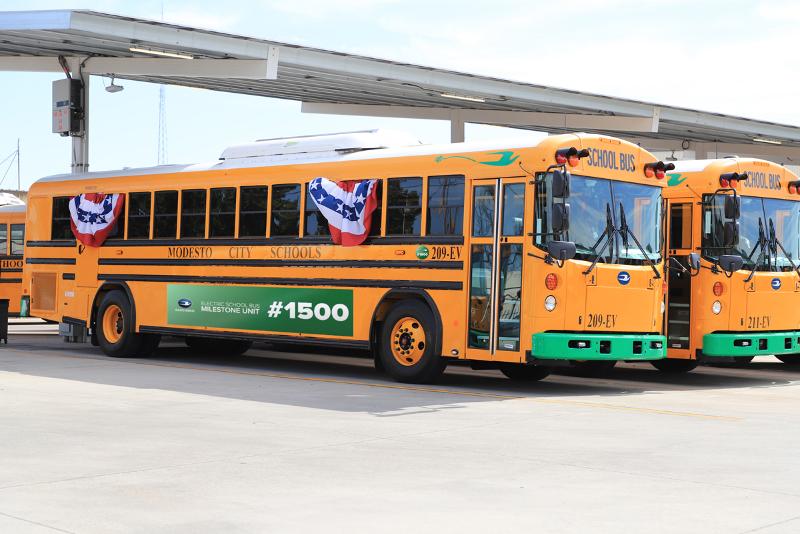Blue Bird, the technology leader in low- and zero-emission school buses, has reached a significant milestone by delivering its 1,500th electric school bus to Modesto City Schools in California. This achievement marks a major step towards a sustainable future, reducing harmful carbon emissions and improving air quality for students across 41 U.S. states. Powered by the electric PowerDrive 7000 system from Accelera by Cummins, Blue Bird's zero-emission school buses are making a positive impact on the environment and the health of students.
Blue Bird's Commitment to Sustainable Transportation
Blue Bird leads the way in sustainable transportation with its electric school buses
Blue Bird Corporation is recognized as the technology leader and innovator of low- and zero-emission school buses, paving the way for sustainable transportation in the education sector. With the delivery of its 1,500th electric school bus, Blue Bird reaffirms its commitment to reducing carbon emissions and improving air quality for students.
By transitioning from diesel-powered buses to electric, Blue Bird is driving positive change in the transportation industry. The electric PowerDrive 7000 system from Accelera by Cummins powers these zero-emission school buses, offering a cleaner and quieter alternative to traditional diesel buses.
With the demand for clean and sustainable school bus transportation on the rise, Blue Bird continues to expand its electric school bus production, making a significant impact on the environment and the health of students.
The Environmental Benefits of Electric School Buses
Electric school buses contribute to a reduction in carbon emissions and improved air quality
The adoption of electric school buses brings numerous environmental benefits. By replacing 1,500 diesel-powered buses with zero-emission vehicles, Blue Bird has reduced harmful carbon emissions by nearly 16,000 metric tons annually. This significant reduction in carbon footprint contributes to mitigating climate change and improving air quality.
Furthermore, the transition to electric school buses eliminates diesel tailpipe emissions, which are linked to serious health issues such as asthma and heart disease. Over 110,000 students a day are now protected from these harmful pollutants, creating a healthier and safer environment for students and communities.
Positive Impact on Education and Communities
Electric school buses provide a positive impact on education and communities
The introduction of electric school buses not only benefits the environment but also has a positive impact on education and communities. With quieter operation and reduced noise pollution, electric buses create a more conducive learning environment for students.
Additionally, the cost savings from lower maintenance and fuel expenses can be redirected towards educational resources, enhancing the overall quality of education. The adoption of electric school buses also sets an example for students, teaching them about the importance of sustainability and environmental stewardship.
Conclusion
Blue Bird's delivery of its 1,500th electric school bus marks a significant milestone in the journey towards sustainable transportation in the education sector. By replacing diesel-powered buses with zero-emission vehicles, Blue Bird is making a positive impact on the environment and the health of students across the United States.
With reduced carbon emissions, improved air quality, and cost savings from lower maintenance and fuel expenses, electric school buses offer a cleaner, quieter, and more sustainable solution for school transportation. Blue Bird's commitment to expanding its electric school bus production demonstrates the growing demand for clean and sustainable transportation options.
FQA
Are electric school buses more expensive than diesel buses?
While electric school buses may have a higher upfront cost, they offer long-term cost savings due to lower maintenance and fuel expenses. Additionally, the cost savings from reduced carbon emissions and improved air quality make electric school buses a worthwhile investment.
How do electric school buses benefit the environment?
Electric school buses significantly reduce carbon emissions and eliminate diesel tailpipe emissions, improving air quality and mitigating climate change. By transitioning to electric buses, we can create a healthier and more sustainable future for our communities.
What is the range of electric school buses?
The range of electric school buses varies depending on factors such as battery capacity and driving conditions. However, advancements in battery technology have extended the range of electric buses, allowing them to meet the demands of daily school transportation.

